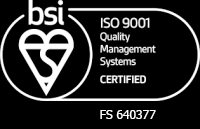Boosting Efficiency in Challenging Times – How Continuous Improvement Can Offset Higher National Insurance Costs
As UK businesses navigate a landscape shaped by the recent government budget, there’s an increased focus on operational costs, with National Insurance contributions (NIC) set to rise. This adjustment puts pressure on companies to re-evaluate expenses and efficiencies. For many, this could be a daunting challenge.
However, it also offers a unique opportunity to enhance business resilience through continuous improvement. Now, more than ever, it is critical for companies to embrace continuous improvement initiatives to offset the financial impact of increased NIC and build long-term sustainability.
Understanding the Impact of Rising NIC
The new budget’s NIC hike means higher contributions for both employers and employees, adding to operational costs. Many businesses will experience increased financial pressures as a result, particularly those with large workforces.
This shift could influence hiring practices, salary decisions and overall workforce strategies. As a response, forward-thinking companies will need to find ways to counterbalance these additional expenses while still maintaining employee satisfaction and business growth.
So why is implementing lean principles and adopting continuous improvement is key right now? Continuous improvement is more than a strategy It’s a mindset of ongoing, incremental progress that helps businesses become more efficient, effective and resilient.
Dom Brook, Managing Director of BrookConsult explains why this approach is especially valuable given the current economic context:
“Continuous improvement empowers businesses to systematically identify and eliminate inefficiencies. Reducing waste and optimising resource allocation helps companies achieve cost savings without compromising quality or service levels.
By focusing on adoption lean principles, it will allow companies to streamline processes, complete tasks faster in a more cost-effective way. With rising NIC, improving productivity can offset some of the costs by helping teams accomplish more without needing additional headcount.
However, quality cannot be compromised. Improvements to quality naturally come from reviewing and refining processes. By addressing root causes of issues and eliminating non-value-added activities, companies can deliver better products or services and maintain customer satisfaction, all while managing costs to offset against rising overheads”
Implementing Continuous Improvement in Response to NIC Increases
There are several continuous improvement frameworks and tools that companies can adopt to navigate financial pressures from increased NIC. Here are some recommended approaches:
Lean Methodology – Lean focuses on maximising customer value while minimising waste. By implementing Lean practices, businesses can identify inefficiencies, streamline processes, and reduce resource usage, all of which help mitigate added operational costs due to NIC rises.
Six Sigma – This approach aims to reduce process variation and eliminate defects, helping companies produce consistent results. Improved process stability often leads to reduced expenses and better resource management, which is crucial when faced with added financial obligations like NIC.
Agile Practices – By embracing Agile methods, companies can improve flexibility and respond quickly to changes quickly. Qualities that are invaluable when adapting to budgetary changes.
Kaizen (Continuous Improvement) – Embracing Kaizen means fostering a culture where every employee is encouraged to suggest small, daily improvements. These incremental changes can add up, resulting in significant efficiency gains and cost savings over time.
‘I delivered my first improvement project at the age of 19 as part of my Manufacturing Degree at Liverpool Poly in 1979! I obviously caught the bug as I have been doing Continuous Improvement (Kaizen) ever since, especially in small manufacturing businesses, who often have no other support apart from organisations like BrookConsult.
The 80s & 90s were hard and that was when I horned my Lean skills and latterly in the 2000s, I added 6 Sigma and Theory of Constraints, but times were always hard in manufacturing and the only way we survived was by rigorously applying Kaizen.
Now we face not only rising costs but also increased NIC which many small businesses are going to have to dig deep to cover the increased costs, one business owner told me recently that the impact of the increased NIC would cost him £100k per year!
So now more than ever in small manufacturing businesses need to reach out to organisations like BrookConsult. to implement proven and sustainable Kaizen techniques to improve their operations and not only survive the current situation but thrive and prosper!’
Roger Kay Specialist Consultant – BrookConsult.
The Long-Term Benefits of Continuous Improvement
While the initial goal of continuous improvement may be to alleviate the immediate financial impact of rising NIC, the long-term benefits are far-reaching.
A leaner, more efficient organisation is better positioned to compete in the market. Companies that embrace continuous improvement can offer higher value to customers, often without needing to raise prices or cut corners.
A culture of continuous improvement creates resilience, allowing companies to better handle economic challenges, regulatory changes, and other uncertainties.
Continuous improvement is not just about short-term fixes it’s a sustainable approach to business that promotes ongoing development, scalability, and growth. This positions companies to thrive regardless of fluctuations in NIC or other operational costs.
Turning Challenges into Opportunities
With the rise in NIC, companies across the UK are facing new financial pressures. However, for those willing to invest in continuous improvement, these challenges can be transformed into opportunities.
By refining processes and engaging employees, it helps foster a culture of efficiency to ensure companies can adapt to changes in the economic landscape while building a foundation for sustainable success.
As the NIC rise reshapes the business environment, there is truly no better time to begin or accelerate your journey in continuous improvement.
At BrookConsult. We work alongside you to create tailored strategies that drive growth, innovation, and long-term success.
Whether you’re looking to streamline operations, enhance leadership, or accelerate performance, we’ve got the expertise to help you achieve your goals.
At BrookConsult, we’re passionate about delivering results that matter. These partnerships reflect our commitment to empowering businesses across various sectors to achieve their full potential.
Let’s build the future of your business together!
Book your consultation today and start your journey toward success.
Lean Manufacturing





